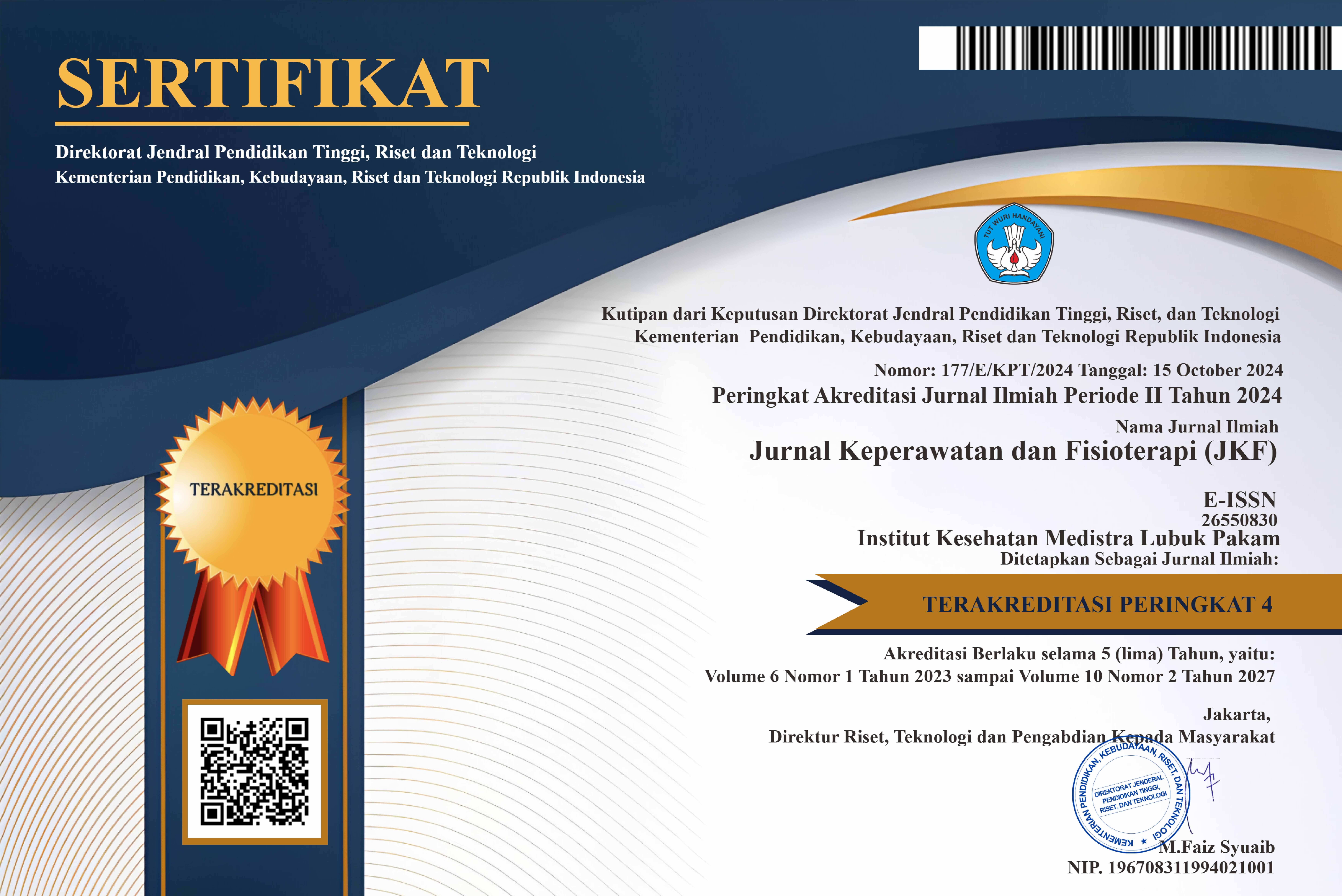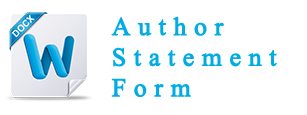The Effect of Giving Ginger Aromatherapy on Nausea and Vomiting in Cancer Patients Post Chemotherapy at Grandmed Hospital Lubuk Pakam
DOI:
https://doi.org/10.35451/jkf.v7i2.2660Keywords:
Aromatherapy, Chemotherapy, Ginger, Nausea VomitingAbstract
Cancer is one of the diseases that is the main cause of death in many parts of the country. In treating this disease, it can be done through chemotherapy, which can destroy cancer cells. However, there are side effects that can be felt by patients, namely nausea and vomiting. These symptoms can interfere with the patient's quality of life so that they become less compliant in following the next therapy. To overcome this nausea and vomiting condition, a type of non-pharmacological therapy can be tried, such as giving ginger aromatherapy which is known to contain active compounds such as gingerol and shogaol which can relieve these symptoms. Quantitative research with a Quasy Experiment design with a One Group Pretest Posttest approach was chosen in this research. A sample of 23 people was determined using the purposive sampling method. Analysis was carried out on the characteristics of respondents and the effect of ginger aromatherapy on nausea and vomiting was tested using a paired sample t-test. The results showed a change in the mean value from 4.52 to 2.48 or a decrease of 2.04, with a t value of 4.97, and a p value of 0.000 which can be interpreted that ginger aromatherapy can reduce the level of nausea and vomiting in cancer patients after aromatherapy. Ginger aromatherapy has been proven to reduce nausea and vomiting levels, making it suitable for recommendation for cancer patients after chemotherapy, so it can provide comfort and improve the patient's quality of life.
Downloads
References
Ahmad, M. (2020). Perilaku Pencegahan Kanker Serviks. Media Sains Indonesia, Bandung.
Gupta, K., Walton, R., & Kataria, S. P. (2021). Chemotherapy-Induced Nausea and Vomiting: Pathogenesis, Recommendations, and New Trends. Cancer Treatment and Research Communications, 26(December 2020), 100278. https://doi.org/10.1016/j.ctarc.2020.100278
Infodatin Kanker (2019). Pusat Data dan Teknologi Informasi : Kanker . Jakarta : Kementrian Kesehatan RI
Gupta, K., Walton, R., & Kataria, S. P. (2021). Chemotherapy-Induced Nausea and Vomiting: Pathogenesis, Recommendations, and New Trends. Cancer Treatment and Research Communications, 26(December 2020), 100278. https://doi.org/10.1016/j.ctarc.2020.100278
Amalia, R., Marwansyah, M., & Ningsih, E. S. P. (2021). Literature Review Pengaruh Ekstrak Jahe Terhadap Mual Muntah Pasien Kanker Paska Kemoterapi. Jurnal Citra Keperawatan, 9(2), 61–72.
Rasjidi, I. (2021). Kemoterapi kanker ginekologi dalam praktik sehari-hari. Jakarta: Sagung Seto.
Gustini. (2021). Pengaruh essential oil jahe untuk mengurangi mual muntah, kenyamanan, anoreksia pada pasien kanker pasca kemoterapi di makassar. Pustaka Katulistiwa, 2, 50–57.
Plutzer, M. B. B. and E. (2021). Pengembangan Standar Operasional (Sop) Pengaruh Aromaterapi Jahe Terhadap Penurunan Mual Muntah Pasca Kemoterapi Pada Pasien Kanker Serviks.6.
Darayani, N. (2021). Pengaruh aromaterapi jahe terhadap mual muntah pasien kanker yang sedang menjalani program kemoterapi. Skripsi, Universitas Katolik Widya Mandala Surabaya. Diakses dari https://repository.ukwms.ac.id/id/eprint/25906/
Tobing, Y. L., Nidianti, E., & Zain, S. S. (2023). Pengaruh Aromaterapi Jahe (Zingiber officinale) terhadap Mual Muntah Pasien Kanker Pasca Kemoterapi. Journal of Pharmacy Science and Technology, 4(1), 5–8. https://doi.org/10.30649/pst.v4i1.56
Hananto, B. A., & Melini, E. (2022). Mengukur Tingkat Pemahaman Pelatihan Desain Karakter dengan Quasi-Experiment One Group Pretest-Posttest. Jurnal Titik Imaji, 6(2). Diakses dari https://journal.ubm.ac.id/index.php/titik-imaji/article/view/5024
Crossman, A. (2020). Understanding Purposive Sampling: An Overview of the Method and Its Applications.
Sagita, D. M., Neherta, M., & Huriani, E. (2021). Penurunan Rerata Kejadian Mual Muntah Melalui Pemberian Aromaterapi Jahe Pada Pasien Kanker Payudara Yang Menjalani Kemoterapi. Jurnal Ilmiah Permas: Jurnal Ilmiah STIKES Kendal, 11 No 3(Juli), 1–8.
Khafifah, N., et al. (2024). Pengaruh Pemberian Aromaterapi Jahe terhadap Penurunan Skala Mual pada Pasien Kanker Pasca Kemoterapi. Jurnal Kesehatan dan Terapi Komplementer, 12(1), 45-52.
Rimawan, I. N. (2021). Pengaruh Aroma Terapi Jahe Terhadap Keluhan Mual Muntah Pada Pasien Kanker Payudara Yang Menjalani Kemoterapi Di Ruang Bima RSUD Sanjiwani Gianyar. Jurnal Medika: Karya Ilmiah Kesehatan, 6(1). https://doi.org/10.35728/jmkik.v6i1.107
Downloads
Published
Issue
Section
License
Copyright (c) 2025 Syatria wati, Pratiwi Christa Simarmata, Debi Dinha Octora Sitepu, Dini Anggraini

This work is licensed under a Creative Commons Attribution 4.0 International License.
Copyright in each article is the property of the Author.


























